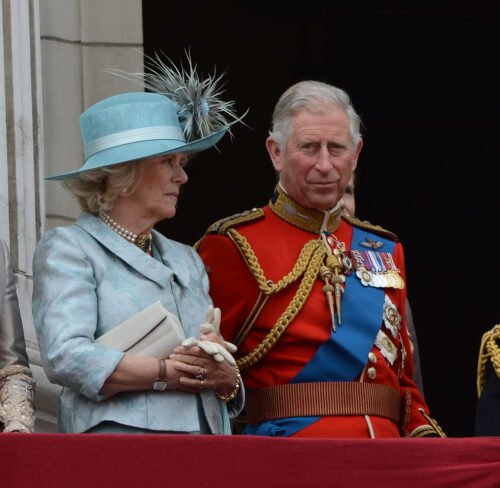
Charles Philip Arthur George was born on 14 November 1948, the eldest son of Queen Elizabeth II and The Duke of Edinburgh. On Elizabeth II’s accession to the throne, in 1952, he became Duke of Cornwall (as well as Duke of Rothesay, Earl of Carrick and Baron of Renfrew, Lord of the Isles, and Prince and Great Steward of Scotland).
Charles's early education was at home but at the age of eight a new precedent was set when he was send to Hill House School and subsequently Cheam Preparatory School. He went on to attend Gordonstoun, a private boarding school in Scotland, famous for its austere regime. Charles despised the school, calling it ‘Colditz in kilts’ and sent his own sons to Eton.
In another break with tradition, Charles eschewed joining the military immediately after he left school and went to Trinity College, Cambridge, where he studied Archaeology and Anthropology. He gained a 2:2 degree and became the first member of the British Royal Family to graduate from university.
Although he was created Prince of Wales and Earl of Chester in 1958, his formal investiture did not take place until 1 July 1969. The ceremony, held at Caernarfon Castle in north Wales, provoked considerable antagonism from Welsh nationalists. There were bomb threats, resulting in the death of two bombers on the eve of the investiture.
Charles's military career began in 1971, when he trained as an RAF jet pilot. He then followed in family footsteps, embarking on a naval career at the Royal Naval College, Dartmouth. He qualified as a helicopter pilot in 1974 before joining 845 Naval Air Squadron. He left the Navy in 1976 after nine months in command of the coastal mine-hunter HMS Bronington.
Charles's name was linked romantically with many women and there was much media speculation about his marriage plans. It was considered imperative that he chose a bride who had impeccable aristocratic lineage, was a Protestant and had no romantic past to speak of. On 24 February 1981 he announced his engagement to 19-year-old nursery assistant Lady Diana Spencer, daughter of the 8th Earl Spencer.
Charles's marriage to Diana on 29 July 1981 at St Paul's Cathedral was a magnificent affair, attended by the crowned heads of Europe and watched by an estimated 750 million television viewers worldwide. Officially known as Her Royal Highness The Princess of Wales, Charles's new bride was popularly known as Princess Diana. She soon became a focus of frenzied media attention, her clothes, hairstyle, friendships and activities scrutinised by millions.
They had two sons, William (1982) and Harry (1984), but within five years the marriage was in serious trouble. By the late 1980s the couple was effectively living apart and while they continued to carry out public duties together, they were visibly uncomfortable in each other's presence. In 1992 the separation became formal and in 1996 they were divorced. When Diana was killed in a car accident in Paris in 1997, the prince overruled palace protocol and insisted that his ex-wife be given a formal royal funeral. Left with his two sons, he received a great deal of public sympathy for the dignified way in which he handled the tragedy.
In 1994 Charles had publicly admitted his long-standing affair with Camilla Parker Bowles, who gradually emerged into the public arena after Diana's death. Although the marriage of the prince and Camilla, both of whom were divorced, was seen as controversial, in time public opinion became more malleable, and on 9 April 2005 they were married in a civil ceremony at Windsor Castle.
The King is a man with many passions and enthusiasms. He is famously interested in environmental issues and has become an effective spokesman for organic farming. His charity work is very extensive – as Prince of Wales he was President of 20 charities, collectively known as 'The Prince's Charities'; the best known is probably The Prince's Trust, which offers loans to young people living in deprived areas, providing funding for business enterprise that would otherwise not be accessible.
As Prince of Wales has was an outspoken critic of some trends in modern architecture. He is an enthusiast for the neo-traditional architecture espoused by architects like Christopher Alexander and Leon Krier, and an advocate of urban design and town planning on a human scale.
He is a supporter of the Dalai Lama and the Tibetan freedom movement, and is fascinated by the philosophy of the Far East, New Age theology and alternative medicine. He is a keen amateur artist, who has exhibited and sold a number of his watercolours. His Drawing School champions traditional skills. He is also a dedicated collector of Aston Martins, and has very close connections to this quintessentially English brand.
Upon the death of his mother, Queen Elizabeth II, at Balmoral on 8 September 2022, he ascended the throne as King Charles III and his wife, Camilla, became HM The Queen Consort.
Looks like you haven't made a choice yet.